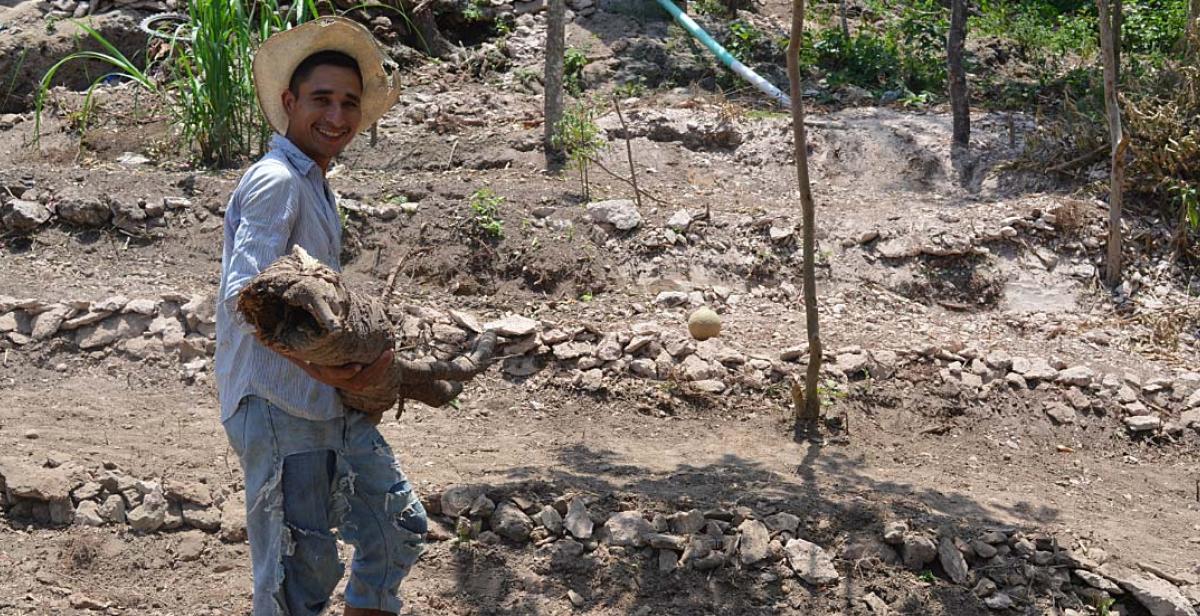Although most of us accept the idea of climate change, it still seems to be a somewhat abstract concept in people's minds, particularly in the western world. We often associate it with an indefinite future of melting glaciers, dramatically rising sea levels and an atmosphere filled with dark smog; these apocalyptic images seem so distant from our current reality that it's easy to continue with our everyday lives, seemingly unaffected by global temperature changes.
However, climate change is a gradual, continual process that is happening right now – ‘ahorita’, as Hondurans would say - and affecting many countries. The effects are devastating, from natural disasters, such as 1998's Hurricane Mitch, to extreme droughts and irregular seasons. As is the case with many global crises, the impact is strongest on the poorest and least developed countries.
Honduras is one of these countries, and it is particularly vulnerable because of its geographic position between the Pacific and Atlantic Oceans, topping the Climate Risk Index list with Myanmar and Haiti. While volunteering with Progressio ICS in the rural areas of western Honduras, we have witnessed these effects first hand, and we have spoken to farmers in the communities around Gracias about how the change in climate has impacted the livelihood of their families.
One of these farmers is Luciano, who lives in the community of Catatao, and is a former Progressio ICS national volunteer. Luciano relies on crops of corn, beans and coffee for his family’s consumption and as a source of income for their basic necessities. In the past two years, irregular rainy seasons and extreme heat have harmed his crops. The temperature in Honduras has been consistently hotter over the past ten years, when compared to the last two centuries, and is expected to rise by a minimum of 2°C by 2050. This would create a hostile environment to plant and grow coffee, which constitutes the main source of income for a large part of Honduran families. During the driest seasons, Luciano now has to work extra hours in construction in order to buy food from external producers, since his crops are insufficient to feed himself, his wife and his daughter.
Although using chemical products in the fields tends to make farmers' lives easier, Luciano is a strong supporter of organic agriculture methods, which he was introduced to while volunteering with Progressio ICS. When talking about why he switched to organic farming techniques, he told us that people in Honduras are going through some tough times due to climate change, and it is important for everyone to love the land they work in and take care of the planet as best they can.
This kind of environmental awareness, spurred by a concrete impact with the effects of climate change, is slowly unifying nations that are facing similar problems, and will hopefully seep into developed countries as irregular weather patterns begin to hit them more and more. It's easy to assume an attitude of resignation in front of the global environmental crisis we are living, but people like Luciano are fighting back, and pushing us to join him in the battle against climate change.
One of our goals by the end of this volunteering cycle is to get six more families to think like Luciano and switch to organic agricultural methods - we'll update you at the end to let you know if we've made it!
Written by ICS volunteer Louisa Di Felice



